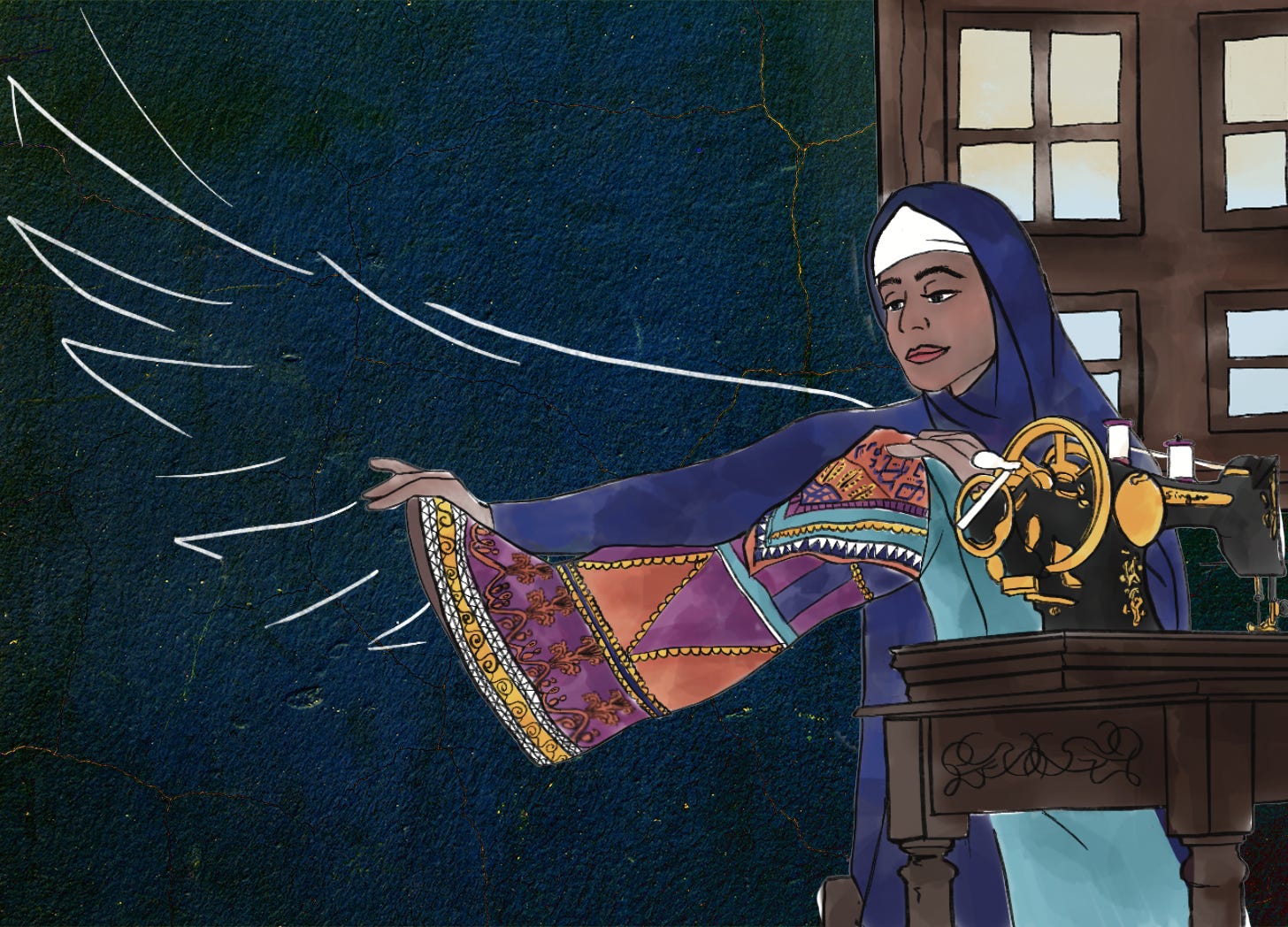Female tailors subvert Taliban crackdown
Vocational training courses are paving a pathway to self-sufficiency for Afghan women, allowing them to break free from societal barriers and achieve their full potential.
It took months to find a location in northern Afghanistan where women could learn safely. Abu* needed somewhere spacious with lots of light, but it had to be hidden so the Taliban wouldn’t find out. His plan to run vocational training courses in a remote region of Balkh Province aims to help young women achieve economic independence by starting their own tailoring businesses.
“The impact of this project goes beyond just learning a skill. It provides girls with a pathway to self-sufficiency, allowing them to break free from societal barriers and achieve their full potential,” says Abu, who runs volunteer projects to support youth in Afghanistan. “By nurturing their talent and fostering an entrepreneurial spirit, the project is creating a ripple effect of positive change in their lives and the community at large,” says Abu.
However, without a license from the Taliban to implement the project, landlords refused to rent him space. Though the Taliban does allow women to work as tailors, obtaining permission from the regime is difficult. “It depends how you design the project. They ask a lot of questions about all the details. I have persuaded them before and hope to again,” he says.
In the past year, Abu has managed to obtain licenses to run two other projects, one for children who have behavior difficulties and another supporting youth living in refugee camps. Having a contact inside the regime helps. “You have to convince them in their language (Pashto). If you speak in Dari, they will likely just send you out. These things are important,” Abu says.
Even if he succeeds, obtaining a license takes time. Around him, people are struggling to survive amid high food prices and soaring unemployment. The country is facing a severe economic crisis that has trapped more than 90 percent of the population in poverty, and many have no way out. “We are far from the city here—people don’t have access to workshops or other support,” he says.
Last August, a delegation of American diplomats met with Taliban representatives in Doha to discuss the country’s financial situation in the first formal meeting since the collapse of the Western-backed government. With the international aid that propped up Afghanistan’s economy vastly depleted following the Taliban takeover, the humanitarian crisis is worsening, and help is in short supply.
So Abu applied for an Innovation Hub grant from Ideas Beyond Borders and obtained the funds to hire a tailoring tutor and purchase seven sewing machines. Tailors can expect to earn around USD $80 per month in Afghanistan—enough to cover monthly expenses for a small family. “We are empowering them to create a sustainable future for themselves and their communities,” he says.
Seven women aged between 17 and 21 are taking part in the first phase. All come from vulnerable families, many of whom lost their source of income in the economic crisis. “For them, the only way to get out of this situation is to secure their livelihood,” says Abu, who hopes to expand the project to other areas and furnish more young women with the skills to launch tailoring businesses from their homes.
Once they have gained experience and built up a client base, there is scope to earn a good wage. Abu’s aunt has been a tailor in Afghanistan for many years and earns around USD $300 a month. This is partly what inspired him to launch the training program. “A lot of people here in Afghanistan prefer to go to home-based tailoring for dresses. There will always be work for people with this skillset,” he says.
The space he secured for the project is a basement flat owned by a friend. There is no sign of his organization* inside, nothing that might give them away if Taliban officials come knocking. A banner was put up briefly to take pictures and then removed. Even the neighbors don’t know the women are learning here. “We take great care to maintain a low profile,” he says.
Despite these pressures, the atmosphere inside the sewing room is upbeat. The women make good progress, their tutor says, advancing quickly. At the end of the two-month course, they will be given the equipment needed to launch their own businesses, including a sewing machine.
“We are providing direct support where it’s needed most, helping women improve their circumstances and survive in today’s Afghanistan,” says Faisal Al Mutar, President of Ideas Beyond Borders. “As we see it, there is only one response to the Taliban’s treatment of women, and that is to fight back by creating new education and employment opportunities that fill the void.”
This is what Abu and his team of dedicated volunteers are striving to achieve. Raised in Saudi Arabia for the first 17 years of his life before moving back to Afghanistan five years ago, he is familiar with life under repressive regimes. Perhaps that’s why, after watching his country endure two years of Taliban rule, he is determined to create pockets of improvement wherever he can. “My aim was always to serve my country and find creative ways to help them,” he says.
His work comes with risks, and there are days when his family begs him to stop, but Abu says he will never turn away while people need support. “It’s hard to maintain hope in this environment, but Afghans can handle a lot. Even when they are suffering, they know that one day, the situation will get better. That’s what I love about my people. If ever I feel discouraged, they motivate me to keep going.”
*Ideas Beyond Borders uses pseudonyms to protect the identities of our grantees in Afghanistan
This article was written by Olivia Cuthbert.




